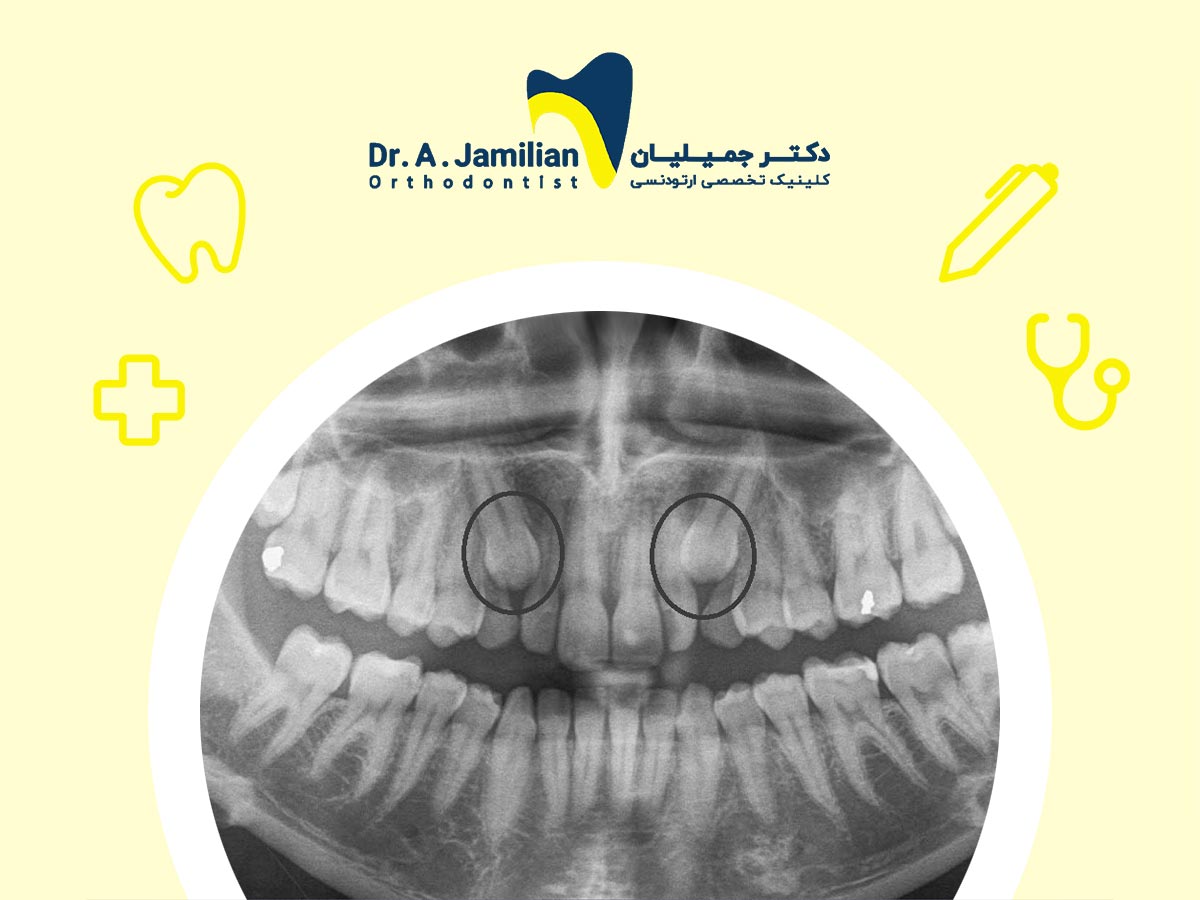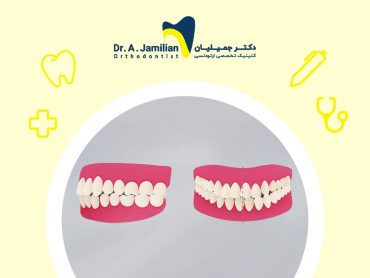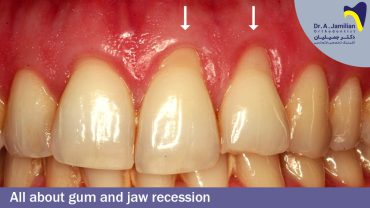As defined in orthodontics, an impacted tooth is an unerupted tooth that has remained within the gums due to a physical barrier against its growth path.
Maxillary and mandibular third molars, maxillary canines, and mandibular premolars are the most common impacted teeth. In a study of patients older than 10 years, 17% of patients had an impacted wisdom tooth, 40% of which was related to the third molar.
The cause of impacted teeth varies throughout patients. Dental crowding, improper position of tooth buds, extra teeth, lack of space in the dental arch, cysts, undeveloped dental roots, and oral habits such as finger sucking are some of the causes of impacted teeth. In such cases, orthodontic treatment helps to correct the anomaly.
Lack of space is mentioned in some references as the most common cause of impacted third molar or impacted wisdom tooth. In another study, the mandibular arch length, the condyle vertical growth path, the distal growth path, and delay in the mandibular teeth development were the four main reasons for impacted teeth.
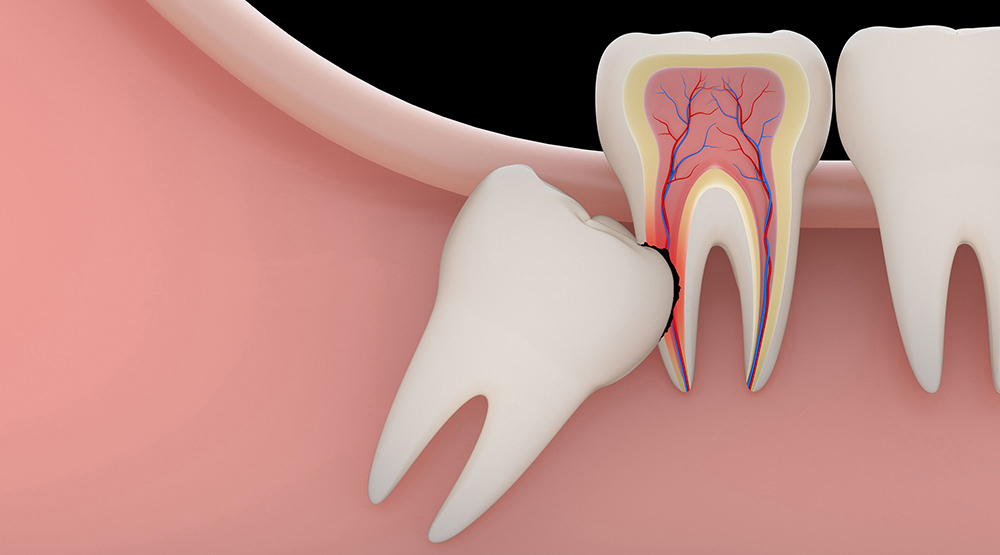
Despite racial differences in eruption sequence, third molars are the last teeth to grow in most races, and this is the reason for the prevalence of impacted wisdom teeth.
Impacted wisdom teeth or impacted teeth in general can result in a variety of complications, necessitating their immediate extraction.
The impacted tooth must be extracted
Dentists and orthodontists recommend that impacted teeth be treated as soon as possible after diagnosis. It should either be surgically extracted as soon as possible or, if possible, directed to a normal dental arch through orthodontic treatment.
As mentioned, impacted teeth must be extracted quickly because the risk of developing a variety of diseases such as immune system diseases, diabetes, cardiovascular problems, and lung diseases increases with aging. Moreover, aging decreases flexibility, including the jawbone, and tissue repair in the event of surgery.
Additionally, impacted teeth have a lot of pain and if not extracted in time, there may be complications such as infection, cysts, the possibility of tumors, damage, and irregularities in adjacent teeth, increased sensitivity, and risk of traumatic jaw fractures.
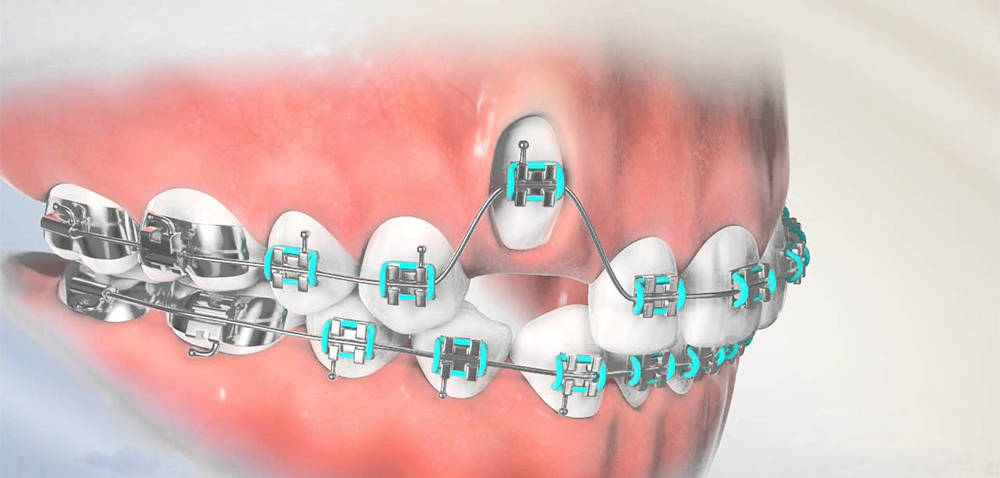
So, note that orthodontics is the first recommended treatment. However, if it is not possible to direct the impacted tooth to its original position in the dental arch, it should be extracted surgically.
It should be noted that in people over 40 years of age, the impacted tooth usually sinks completely into the jawbone and becomes calcified. In the absence of a definite problem after thorough examination and radiography, the dentist may not prescribe impacted tooth surgery and may recommend only an annual dental check-up.
In addition, in some people, wisdom teeth may never form. However, it is recommended that people aged 20-25, who are doubtful about the presence or absence of their wisdom teeth, should go to the dentist to have a radiograph taken to check for the possibility of an impacted tooth.
Diagnosis of impacted teeth
Canines often grow fully at age 14. At this age onward, orthodontic treatment of impacted canines can be done and this method is one of the most effective ways of treating impacted canines. Additionally, the average age when wisdom teeth completely grow is at age 20, or at its maximum, at age 35. If they are not erupted or grown by the said age, they should be examined for the possibility of the impacted teeth.
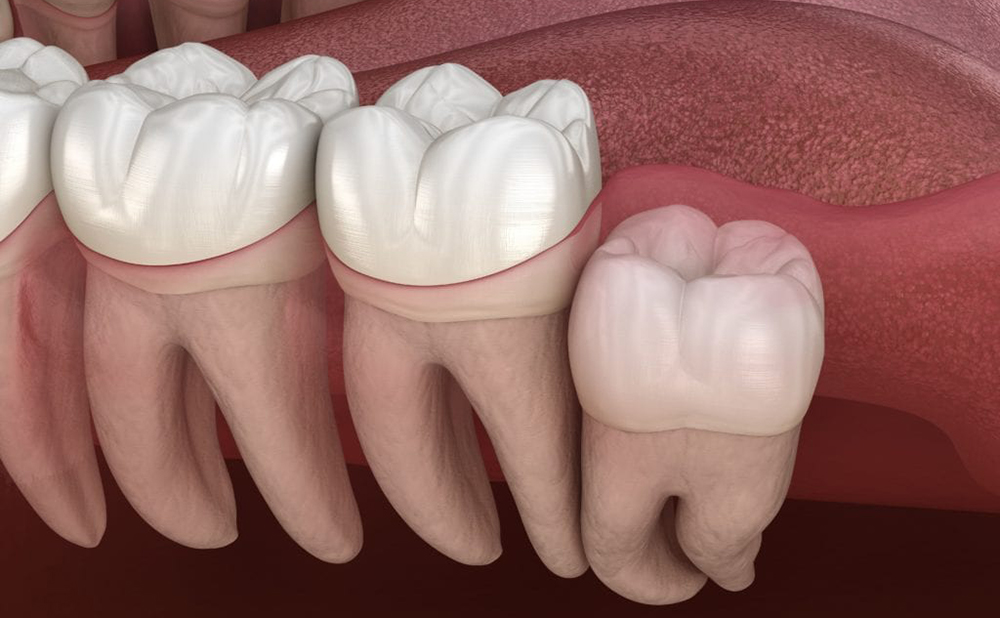
Symptoms of impacted teeth include gum and jawbone pain, inflammation and itchy gums in the impacted tooth region, treatment resistant chronic headaches, earache, eye pain and temporary vision problems, sore throat, and tooth decay.
In addition, in some people, wisdom teeth may never form. Thus, people aged 20-25 who are doubtful about impacted teeth are recommended to visit the dentist and undergo a radiograph to check for the possibility of an impacted tooth.
Prevention of complications of impacted teeth is possible by timely diagnosis and extraction of impacted teeth. Parents should take their children regularly to the dentist from early childhood.
